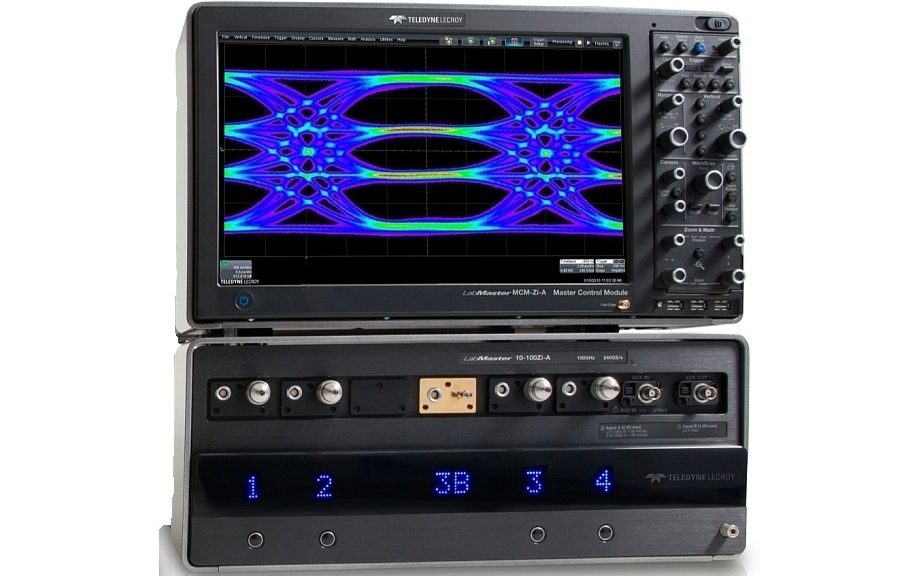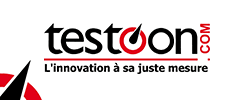- Teledyne LeCroy and Anritsu announce a partnership to provide PCI Express 4.0 (PCIe Gen4) test solution, integrating the Anritsu Signal Quality Analyzer (SQA) MP1900A BERT with the LabMaster 10Zi-A oscilloscope (photo) and QPHY-PCIe4-Tx-Rx software from Teledyne LeCroy.
- This system provides one solution to conduct automated transmitter and receiver compliance tests, as well as link equalization verification.
The Anritsu/Teledyne LeCroy solution can be expanded to 32 Gb/s, making it an end-to-end solution to address PCI Express 5.0 (PCIe Gen5) requirements. The system will also support PCI Express 3.0 (PCIe Gen3) transmitter, receiver and link equalization testing for PCI Express ecosystem coverage.
The LabMaster 10-25Zi-A oscilloscope provides the necessary 25 GHz bandwidth for PCIe Gen4 transmitter testing and receiver test calibration, and may be upgraded in bandwidth to support next-generation serial standards at 32 Gb/s and higher.
The LabMaster 10-25Zi-A and the forthcoming QPHY-PCIe4-Tx-Rx software option performs all necessary automation and control for PCIe Gen4 transmitter, receiver, and link equalization test in conjunction with the Anritsu MP1900A. According to Teledyne Lecroy, debugging of PCI Express interfaces is simple and intuitive with integrated eye diagram and jitter analysis tools and PCI Express decoding with waveform annotation and tabular analysis.
With a BERT that supports 2.4 Gb/s to 32.1 Gb/s, the SQA MP1900A can conduct link training/equalization and Link Training and Status State Machine (LTSSM) analysis. It combines an internal pulse-patter generator (PPG) with integrated 10-tap emphasis and built-in error detector (ED) with clock recovery, and variable 12 dB continuous time linear equalization (CTLE) and Link negotiation functions required for PCI Express receiver tests. The MP1900A can conduct jitter and noise tolerance tests.
PCI-SIG is the consortium that owns and manages PCI specifications as open industry standards. The organization defines industry standard I/O (input/output) specifications consistent with the needs of its members. Currently, PCI-SIG is comprised of nearly 800 industry-leading member companies.






